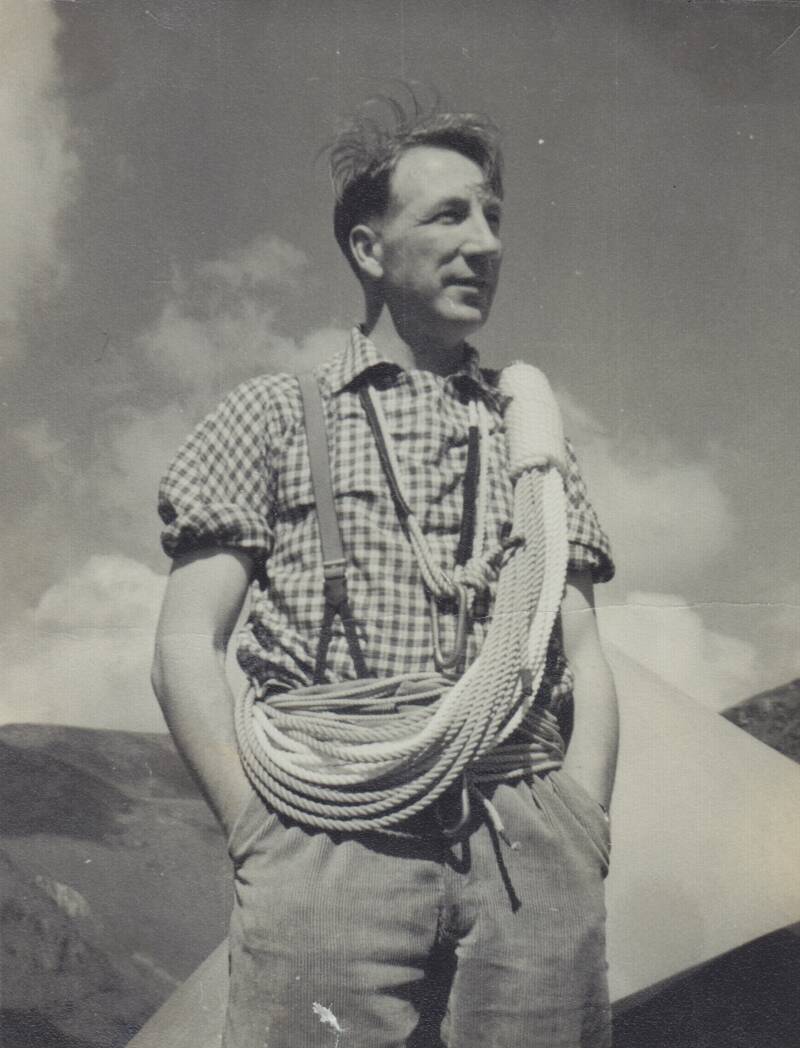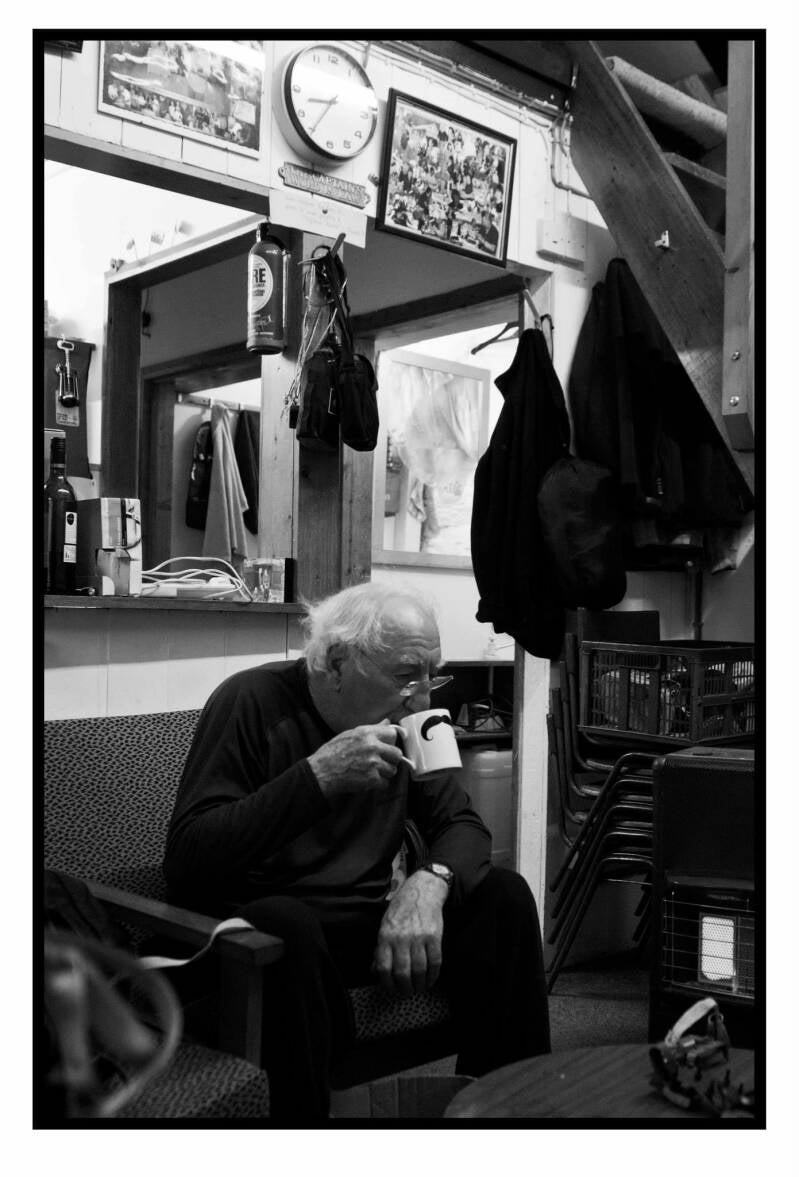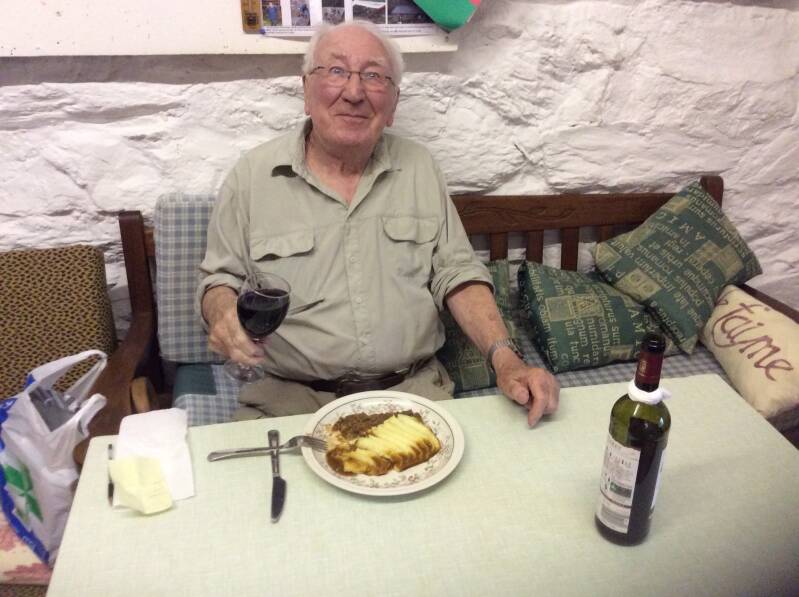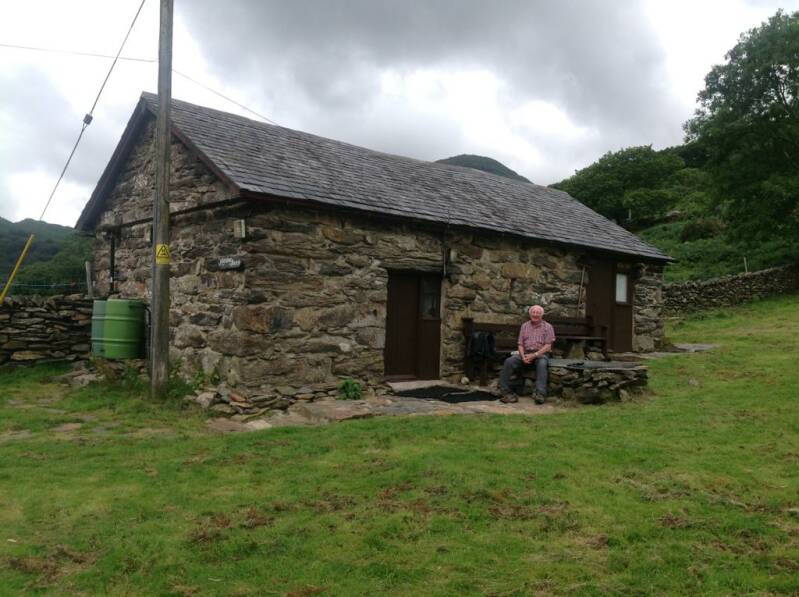
Pete Marston, or more accurately, Malcolm Peter Marston, was born on October 20th 1925, in Nuneaton to Julie and Cyril Marston. They lived in Weddington Road, and Pete went to Vicarage Street Junior School before heading on to King Edward Grammar School. He matriculated and left at fourteen to become an apprentice at Alfred Herbert.
From a very early stage Peter had been interested in scouting and joined the Cub pack at the Fourth Nuneaton as soon as possible. He also registered for the navy in 1939 as soon as the war broke out. He chose the navy because his father, Cyril, and his grandfather, Saturday, had both been in the merchant navy as young men. Pete was making great progress in the Scouts and soon achieved his King Scout award.
In 1943 Pete was called up into the navy. After basic training he joined HMS Emperor, an aircraft carrier.

Pete underwent basic training in Portsmouth before being assigned to HMS Emperor, an aircraft carrier, where he served his time as an Able Seaman. He was soon selected for officer training, but failed the six week course. He was told in his debrief that he ‘lacked assertiveness and leadership skills’. He later found out that the successful graduates had been given command of landing crafts for D-Day, together with a pistol and orders to clear the vessel when they hit the beach, by any means necessary. Peter served through D-Day, the Arctic convoys to Russia, being hit by kamikaze attack and witnessed the Japanese surrender at Trincomalee, before being demobbed in 1946.
He returned to a much altered post-war Britain to discover that entry requirements for teaching had been much lowered, and his basic School Matriculation Certificate would now be sufficient for teacher training. Thus he enrolled at St Peters College, Saltley, in Birmingham and took a two year course in Primary Teaching. On graduation he gained a job at Stockingford Infant and Junior School, where he stayed for a number of years before moving on to Friary Middle School in Abbey Green.
Throughout these years Pete had never lost his interest in scouting and remained an active participant at all levels. By the mid-fifties he had become Assistant District Commissioner for Warwickshire Scouts and had led the Fourth Nuneaton, and larger groups, on expeditions to Scotland , the Lake District, North Wales, the South West, as well as abroad to Denmark, Norway and Switzerland. It was no surprise when he was asked to organise the Warwickshire contingent to the 1957 International Jamboree in Sutton Park. It was here he first met the young Ken Wilson, who was a scout with the Solihull contingent. It was the first of many meetings over the years and Ken never forgot him and they had many chats about it at later BMC meetings and social events
Peter and the 4th Nuneaton had camped all over the country, but it was North Wales which exerted a strong pull on him. The group eventually came across a bunkhouse in which they could stay. This was a step up from camping in all weathers and they began to focus more of their activities there. The bunkhouse was an outbuilding attached to the main house at Tal y Waen, near Capel Curig. It was run by Scotty Dwyer and his wife, Nell. Scotty was one of the first fully qualified British Mountain Guides, who eventually ended his career at Plas Gwynant, the Sandwell Outdoor Pursuits Centre situated opposite Ysgubor Bwlch in Nantgwynant.
Peter had meanwhile undertaken further teacher training to become a Secondary Mathematics specialist and took up a place at Higham Lane High School in Nuneaton in 1959. Throughout this period he had maintained his strong interest in Scouting, and was also being asked by Nuneaton Education Committee to run Youth Service courses to introduce young people to the Outdoors. Quite often he would make use of his former Senior Scouts to act as instructors, and many of these courses were based in the Ogwen Valley, either under canvas or at Tal y Waen
In 1964 Pete was successful in his application for the headship of George Eliot School in Nuneaton. It was a small secondary school at the time, and Peter took to the role with his usual enthusiasm. He was still involved in running Outdoor Pursuits courses for Nuneaton Education Committee, mainly in North Wales. By this time he had also been placed in charge of Warwickshire’s teacher training for Outdoor Pursuits. He ran courses for teachers from all over the county, based in Scotland and The Lake District. The courses ran successfully for many years and enabled those involved to start on the path to gaining the Mountain Leadership Certificate, which Peter had been awarded in 1964 as one of the first cohort chosen nationally to set the standard. He had been working during the summer holidays for some years as a Voluntary Instructor at Plas y Brenin, the National Outdoor Pursuits Centre in Capel Curig.
Pete continued to be involved in running courses for various organisations. He ran Scout courses in Kandersteg, Switzerland, as well as leading the first overseas Club Meet for the Mountaineering Club Of North Wales to the Bernese Oberland. He was also instrumental in seeing that youngsters were offered the chance to visit the outdoors. He introduced the first national school qualification at General Certificate of Secondary Education level in Outdoor Pursuits. He was also a committed mathematician, an Associate of the College of Preceptors, who set and marked Local Authority Mathematics examination papers for Brighton and the surrounding area.
By 1968 George Eliot School had merged with another local school, doubling in size, and Pete was successful in his application for the headship. In another four years the school would merge yet again and Peter was again successful in his application for the new, larger school. During this time Pete continued to encourage participation at all levels in Outdoor Pursuits by an ever increasing group of friends and acquaintances. The Wood Shed was in full swing and Peter had also scouted an Outdoor Pursuits Centre for Warwickshire Education Committee at Marle Hall on the coast.
Pete remained active as a walker throughout his life, and was a keen and active member of the Hinckley Mountaineering Club. He forged many strong friendships here, and helped the club to introduce newcomers to the hills, as well as contributing to the Committee. He was honoured to be elected as President during these times and these club friendships were a positive and valued support in his later years, when movement became more difficult.
Pete set out on his final expedition to the Great Ranges in January 2019. His friends and family scattered his ashes at Ysgubor Bwlch later that year. Gone, but often remembered, here and elsewhere.


